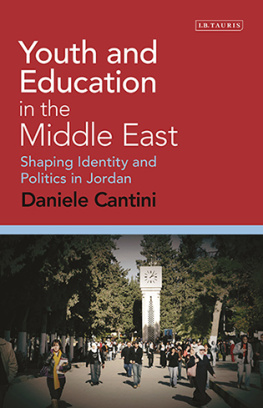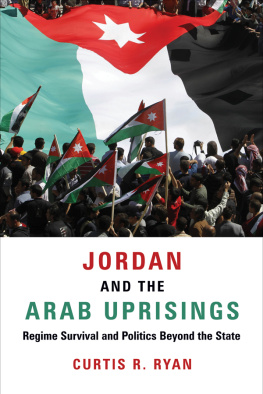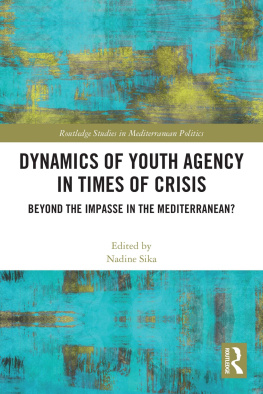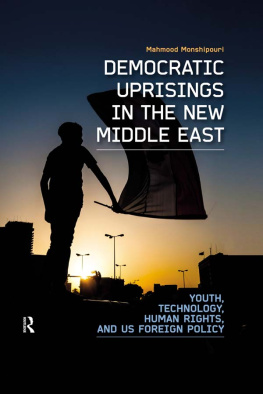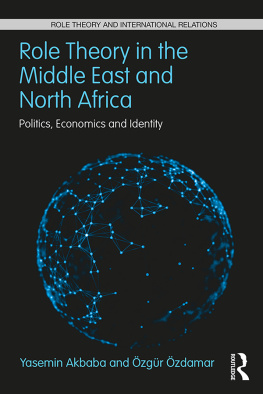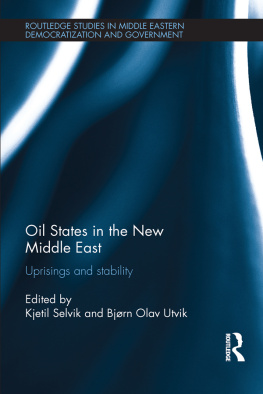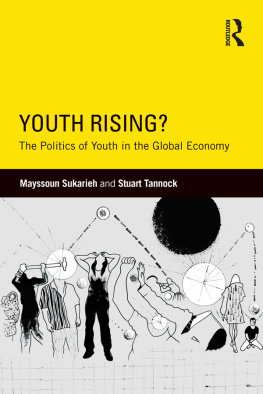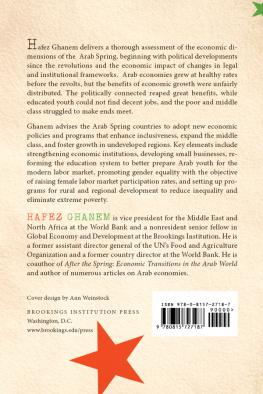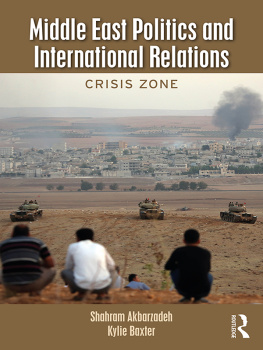
Daniele Cantini is a social anthropologist and Senior Research Fellow at the Graduate School for Society and Culture in Motion at the University of Halle, Germany. He holds a PhD from the Department of Cultural and Language Sciences at the University of Modena and Reggio Emilia, Italy. He has conducted extensive research in Jordan and Egypt, and published articles on questions related to youth and university, migration and religious minorities, among others. He is co-editor of Subjectivity and Islam: Ethnographic Perspectives, and is also editing Rethinking Politics of Private Higher Education. His current research project is on knowledge production at Egyptian universities.
A fresh and theoretically sophisticated ethnography of a Middle East university and its contradictions. Skilfully interweaving accounts of global policy initiatives, student lives, campus activism and the gendered challenges of the local labour market, Cantini makes an important contribution to the anthropology of higher education.
David Mills, Lecturer in Pedagogy and Social Sciences, Oxford University
Cantinis book is a notable contribution to the small but growing literature on the history and ethnography of higher education in the Middle East. Examining the University of Jordan as an institution, a space, an experience and a vector of socio-economic and political currents, Cantinis study presents a view of Jordanian society missing from more traditional ethnographies one where young people are constructing their lives and identities while contesting, resisting or railing against their contexts, even when they are stuck in them. These complexities are nicely contextualised within an institutional analysis of the university as a site for modernity, state power, legitimacy and globalisation.
Seteney Shami, Director General, Arab Council for the Social Sciences and Programme Director, Social Science Research Council
YOUTH AND
EDUCATION IN
THE MIDDLE
EAST
Shaping Identity and Politics in Jordan
D ANIELE C ANTINI

To Federica and Marta
Published in 2016 by
I.B.Tauris & Co. Ltd
London New York
www.ibtauris.com
Copyright 2016 Daniele Cantini
The right of Daniele Cantini to be identified as the author of this work has been asserted by the author in accordance with the Copyright, Designs and Patents Act 1988.
All rights reserved. Except for brief quotations in a review, this book, or any part thereof, may not be reproduced, stored in or introduced into a retrieval system, or transmitted, in any form or by any means, electronic, mechanical, photocopying, recording or otherwise, without the prior written permission of the publisher.
References to websites were correct at the time of writing.
Library of Modern Middle East Studies 177
ISBN: 978 1 78453 247 5
eISBN: 978 0 85772 937 8
ePDF: 978 0 85772 733 6
A full CIP record for this book is available from the British Library
A full CIP record is available from the Library of Congress
Library of Congress Catalog Card Number: available
CONTENTS
ACKNOWLEDGEMENTS
My greatest thanks are due to the students and friends who have agreed to share long hours of their time with me, talking about their lives and expectations, and helping me in endless ways, from language support to counselling at moments of crisis. For their privacy I do not mention them by name, other than those who appear in the book itself, but without their immense generosity my research would not have been possible, and this book would not exist. The months spent in Amman have been a truly formative part of my life in many ways, and I am grateful to all those who shared their time with me. During my fieldwork I received support from many people, usually in the form of time and information. In this respect I would like to mention the professors and researchers who have helped me at various critical junctures, particularly, though not exclusively, Mahmoud Al-Shafi'i, Jihad Al-Shu'aibi, Rula Quwwas, Waleed Gharaybeh, Mohamed El-Masry, Baha Abu Hasna, Sarah Ababneh, Zaid Eyadat and Abdelhakim al-Husban.
This book is based primarily on the research that I carried out for my PhD, funded by the University of Modena and Reggio Emilia, and supervised and structured at the University of Milano Bicocca. I thank first those in Modena who allowed for such a strange configuration, which enabled me to be part of two endeavours at one time, particularly Gualtiero Harrison and Antonello La Vergata, and Ugo Fabietti in Milano for having welcomed me. My deepest thanks go to my supervisor Setrag Manoukian, who spent hours with me each time I returned from the field, providing detailed supervision, and carefully reading my chapters; his insights were always acute, and our encounters enriching. While I was in Amman, Domenico Copertino, a fellow PhD student at Bicocca, was in Damascus, and we shared a number of weekends, readings and enjoyable times.
Above all I thank my family for having instilled in me the curiosity to meet other worlds and people, and for having always supported me in doing so. My interest in Jordan began when I was undertaking voluntary work in the West Bank, and my first encounter with the country came through the Piccola Famiglia dell'Annunziata in the village of Ma'in, and particularly Caterina and Tommaso, who made possible my first encounters, most importantly the two months spent at the house of the Al-Husary family, an experience that enabled me to access Jordan in a domestic way. Their support has continued throughout, gentle and discreet, and has been instrumental in making me consider Jordan a second home, despite my complete lack of contact with it before I started my fieldwork.
The fieldwork for this study was funded by my scholarship at the University of Modena and Reggio Emilia in 20035 and by the Martin-Luther University Halle-Wittenberg in 2012. On both occasions I was affiliated with the Ifpo (Institut Franais du Proche Orient/French Near East Institute), first as an affiliated PhD student (I owe thanks to Ugo Fabietti for having suggested this, and to Jean-Franois Salles for having welcomed me despite my terrible French) and then as an affiliated researcher, due to the kind interest in my research taken by Elizabeth Longuenesse. At the Ifpo I enjoyed scholarly discussions and a friendly atmosphere, as well as its library; I owe thanks to those who welcomed me, in particular Myriam Ababsa, Jalal Al-Hussein, Vronique Bontemps, Carmen Elias, Alessandra Peruzzetto, Cyril Roussel, and Mohammed Al-Khalaf. On my second stay, I was invited to deliver a paper at the Ifpo, and this gave me the opportunity to hear critical remarks from an audience most of whom were much more knowledgeable than me, in particular Mona Taji and Abel Piqueras.
Along the way I received the help and support of many scholars and friends, who in different ways all confirmed the validity of my research interest, and supported me in pursuing it; without them this book would not have seen the light. In Modena, Fabio Viti encouraged me to think about the issue of entry into the labour market, and has been a source of support throughout. Upon completing my PhD, I was lucky enough to end up in Cairo, following my wife's career, and was welcomed at the CEDEJ by the late Alain Roussillon, whose company I would have liked to have enjoyed much longer, and by Iman Farag, through whom I came to know Vincent Romani and Nefissa Dessouqi, they all helped me in refining my understanding of the university in the Arab world. Iman in particular has in effect been a second supervisor, and I am lucky to benefit from her comments and her friendship. I am also grateful to Paola Abenante, Luigi Achilli, Julie Billaud, Stefano Boni, Susanne Dahlgren, Baudouin Dupret, Moushira Elgeziri, Sebastian Elssser, Corinne Fortier, Florian Kohstall, Aymon Kreil, Jonathan Kriener, nder Kkural, Irene Maffi, Nassar Massadeh, Gnter Meyer, David Mills, Elizabeth Picard, Thomas Pierret, Paulo Pinto, Armando Salvatore, Samuli Schielke, Etrit Shkreli, Steffen Strohmenger, Kathryn Spellman, Mauro Van Aken, as well as to Ala Al-Hamarneh, a friend, a gifted interlocutor and a great companion for conference-going. My sincere apologies to all those whom I have wrongfully forgotten.
Next page
